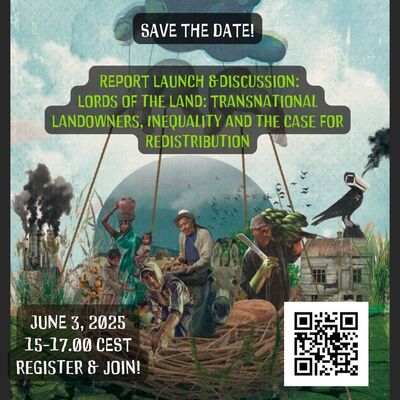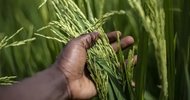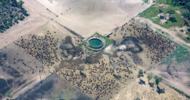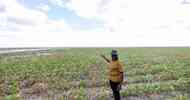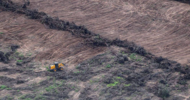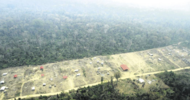The economic nationalism and calls for protectionism seem ironic given the fact that Fonterra itself is a large multinational, which in addition to having farms in China, has since 2002 been in partnership with global food giant Nestle in the Dairy Partners Americas.
- NZ Workers Party
-
03 April 2010
Mr Massimov said Kazakhstan was negotiating an agreement with China to fund farming projects in Kazakhstan. “We are not giving China any land. The land code forbids it. But if we have a buyer [for crops], be it China or Arabia, then let’s sell,” he said.
- Financial Times
-
28 December 2009
Foreign investment in African agriculture means the creation of jobs, the introduction of modern knowledge and technology, and desperately needed additions to countries' tax bases, writes DW's Ludger Schadomsky.
- Deutsche Welle
-
09 December 2009
The South Korean government has realised that its 49 million people cannot, in the long term, be fed sustainably without the assistance of Africa’s abundant land resources.
There’s a whole school of economic thought that says that Collier is wrong, that big is not necessarily better in agriculture — and that the land deals therefore might be unwise not because they’re wrong but because they’re unprofitable.
- New York Times
-
19 November 2009
Why produce a low-value crop such as wheat using expensive water when the FAO says the global wheat harvest will this year be second only to last year’s record?
- The National
-
16 November 2009
There has been criticism of the deal in France, pointing out that Denis Sassou-Nguesso, the Congolese president, is widely considered to be severely corrupt. But de Jager believes such attacks are motivated by a desire to protect French [farm export] interests against competition.
- The Telegraph
-
21 October 2009
The UPA Government has deprived job opportunities to millions of illiterate and semi-literate Indians by forcing Indian companies to invest abroad in overseas plantations and coal mining sectors.
- Organiser
-
13 October 2009
The Australian almond plantations of agribusiness group Timbercorp have been sold to Singapore-based multinational food giant Olam International for $128 million.
- The Age
-
18 September 2009
COPAGEN strongly recommends peasant organisations along with other sectors of the population to mobilise and to challenge the land grab transactions already made and, from the standpoint of food sovereignty, to discuss how to safeguard this land that is their heritage.
- COPAGEN
-
16 September 2009
A Kuwaiti company partly owned by the emirate's sovereign wealth fund is preparing to join other Gulf states in buying up agricultural land in Asia, part of a global land grab to ensure food security.
While ordinary Canadians watch their pensions and jobs evaporate in the global economic mess, those who brought us the crisis have found a new profit-making toy. It’s land-grabbing, 21st-century style. Canada is not being spared.
- Chronicle Herald
-
28 June 2009
Carl Atkin, Head of Research at Bidwells Agribusiness looks at the recent interest in 'strategic food security' and the associated 'land grab' by Middle Eastern Corporations and Governments in countries as diverse of Sudan, Senegal and Sierra Leone.
- International Supermarket News
-
25 June 2009
In the Czech Republic, agricultural land is also being snapped up. Whereas buyers used to be mainly Dutch and German farmers, now Western investment companies are also getting in on the act.
Undeterred by recent debates, a Bahrain scouting mission left for a week-long trip to the Philippines and Thailand yesterday, where it hopes to secure fruit and vegetable plantations.
- Gulf Daily News
-
25 June 2009
High on Chongqing's shopping list is more than 333,000 hectares of farmland, which Huang said would reduce the city's dependence, for example, on imported edible oil.
Cambodia has been signing deals with Kuwait and Qatar to help develop its agricultural sector. Cambodian officials, however, refuse to disclose details of the agreements, worth hundreds of millions of dollars.
A Norwegian company, ScanFuel Ltd., says its Ghanaian unit has contracted about 400,000 hectares of land, with up to 60 percent reserved for biofuel production, “not less” than 30 percent for food production and the remainder for biodiversity buffer zones.
- Ghana Business News
-
23 May 2009
Sudan is trying to diversify and strengthen its economy to make up for plummeting oil revenues. Ministers have been wooing agricultural investors, particularly from the Arab world.
The debate over foreign investment is set to expand from the mining industry to agriculture as overseas investors pour billions of dollars into Australian rural properties considered by some to be strategic national assets.
- The Australian
-
24 April 2009
“The food crisis in the spring of 2008 was a warning sign,” according to al-Obeid. Saudi Arabia is a net importer of agricultural products, especially rice, corn and soya. This fact is pushing the state to invest overseas. We’ve sent government and private-sector delegations to Turkey, Ukraine, Egypt, Sudan, Thailand, the Philippines, Vietnam, Ethiopia and Uzbekistan. These delegations have been very warmly received.”
- Le Monde Diplomatique
-
16 Mar 2009
While I am all for infrastructure projects, the way these large-scale agriculture projects are being conceived leaves a lot to be desired. One, they are shrouded in secrecy. Two, this being Kenya, it is not clear who will benefit most.
- The Daily Nation
-
01 February 2009
Arab agricultural ministers decided to urge government-owned and private companies, as well as Arab financiers and industrialists, to invest in common agricultural projects in qualified countries. The future belongs to those who produce their own food.
Sri Lanka has offered farm land to Qatar to grow food on the fertile island.
- Gulf Times
-
13 January 2009
Lured by soaring food prices, corporations - both domestic and foreign - have been snapping up land in this fertile region the size of France, replacing inefficient Soviet-style collective farming with modern farming techniques and economies of scale.
- Associated Press
-
19 September 2008
“Foreigners who come here get astonished at the gleaming black earth,” said Viktor Karnushin, head of a local subsidiary of Sweden’s Black Earth Farming corporation, one of the biggest foreign players in Russian farming.
- Associated Press
-
19 September 2008
A decade after capitalism transformed Russian industry, an agricultural revolution is stirring the countryside. The change is being driven by soaring global food prices (the price of wheat alone rose 77 percent last year) and a new reform allowing foreigners to own agricultural land. Together, they have created a land rush in rural Russia.
- New York Times
-
31 August 2008
"Initially we asked the Africans how much they wanted in rent. They said it's free, just share the food with us. We made a deal that we only pay $1 per year per acre in rent. At the start we didn't promote the idea because we didn't want people to say we were grabbing land."
- Irish Times
-
27 August 2008
The Chinese government is more and more worried over the control that overseas firms are exercising over a good portion of China’s food supply, and there is even some thought that the recent inflation might have been triggered by foreign food giants as they have expanded into every corner of China’s agriculture.
- China Stakes
-
12 August 2008
The UAE and its food-importing neighbours are “particularly vulnerable” to spiralling costs and should make significant investments in “contract farming” in Africa and Asia, says the UN’s Gulf food chief, Dr Kayan Jaff.
- The National
-
21 June 2008




